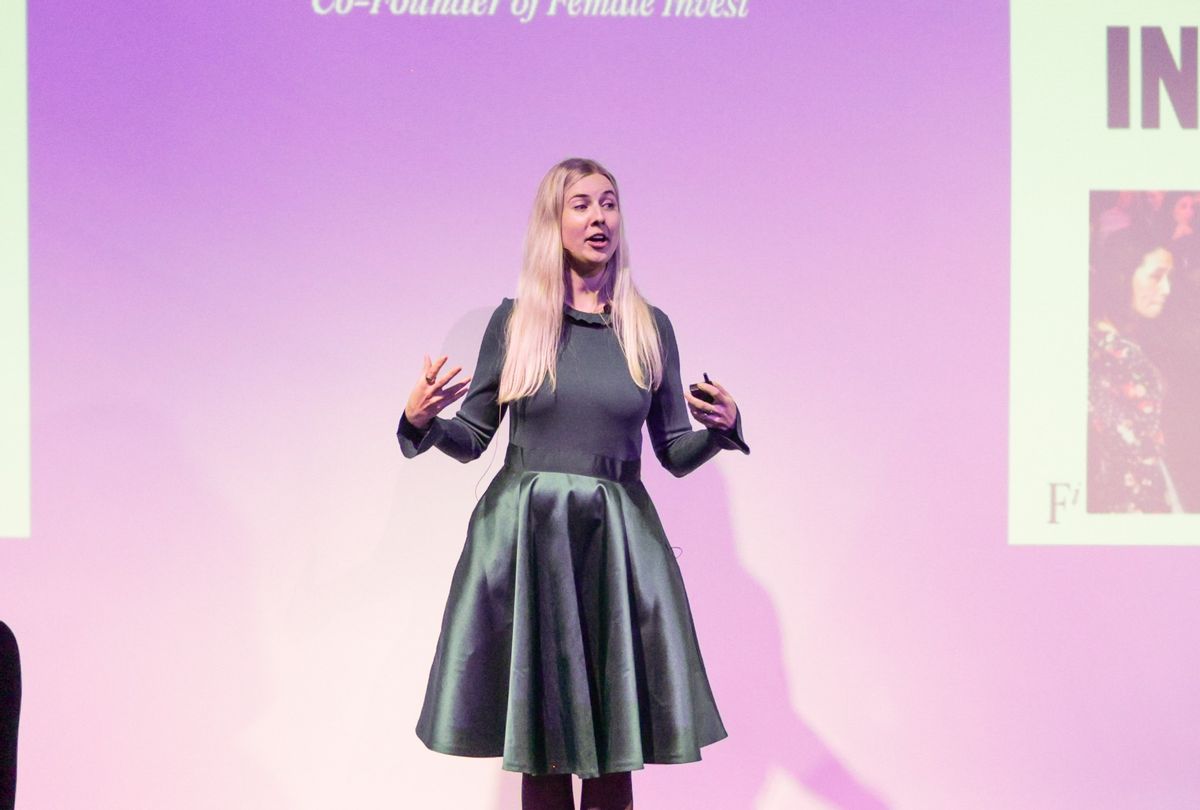Nearly a decade ago, 22-year-old Anna-Sophie Hartvigsen realized that she didn’t know that much about investing and women around her didn’t either. So she started a Facebook group called “Female Invest.”
Around 400 women joined on the first day. Hartvigsen saw that the problem and the thirst for investing knowledge and a supportive community was much bigger than just her and her group of friends.
Since then, that Facebook page she opened in Denmark evolved into a non-profit, then a global fintech company called Female Invest with $24 million in venture capital raised to date, including some from U.S. investors like Y Combinator and Green Visor Venture Capital.
After reaching 100,000 paying users, the company entered the U.S. market earlier this year, focusing on financial education in 2025 with plans to introduce financial instruments to U.S. users next year.
We need your help to stay independent
The timing of their U.S. expansion is especially notable as established platforms like Ellevest are scaling back their focus on everyday investors with a few hundred bucks to play with to only focus on affluent clients–a reflection of growth challenges faced by financial advisors when managing small portfolios.
With its mission to educate and engage more women, Female Invest often draws comparisons with Ellevest. The firm was founded in 2014 by financial feminism pioneer Sallie Krawcheck, the former CEO of Merrill Lynch Wealth Management, one of the largest wealth management businesses globally.
In February, Ellevest announced a deal with Betterment, in which it sold its automated accounts and will instead focus on “high and ultra high net worth individuals, families, and institutions looking to invest $500,000 or more” going forward.
Hartvigsen rejects comparison with Ellevest or Betterment, saying they have a “very different target group.” While Ellevest is now focused on high-net-worth clients, Female Invest is interested in potential investors who’ve been sitting on the sidelines while companies like Robinhood and Revolut mainly appeal to male investors or active traders, according to Hartvigsen.
Speaking with a hint of a European accent and resounding optimism about the future, Hartvigsen doesn’t seem deterred by the US competitive landscape or political headwinds.
“Women in the U.S. are going through an incredibly dangerous time,” says Hartvigsen, who is now based in London, noting that it’s more important than ever for women to think about investing on a regular basis.
Under the Trump administration, some financial experts have already raised concerns about potential economic hardships and threats across various aspects of their lives, including employer protections, access to healthcare, reproductive rights and educational opportunities, which can impact their long-term financial health and ability to save and invest. This is especially true for underrepresented fields like STEM.
“Now that the DEI programs are being taken away, we’re not looking to fill those positions with women anymore, so that could really cause some economic devastation for a lot of women,” says Pattie Ehsaei, a lawyer and financial literacy advocate. “And that also has a snowball effect, because if you lose your job, you’re not going to be able to get another job, because those programs don’t exist anymore to promote the hiring of women, and then women fall into poverty.”
Online, their feminist message and financial education content have resonated with over half a million Instagram followers, even as many American corporations dismantle many DEI initiatives and social media messaging.
“Any company that can abolish their DEI initiatives never had equal opportunities anyways,” Hartvigsen said. “If they had, it would be impossible to roll back. For example, imagine if companies tried to roll back white male leadership. Impossible.”
Financial education more important than ever
Female Invest also has big plans for diving deeper into fintech. Next year, they’re planning to launch a trading platform catering to women.
“So many women getting started aren’t really on any trading platforms that are built by and for women, so as a result women just don’t engage with them,” she says.
They’re also looking to customize and retain a lot of values that are important to women investors and others who choose to use their app for investing.
“So you can choose things that matter to you, diversity and leadership or carbon footprint to show you how your portfolio aligns with the values, or what alternatives there could be,” Hartvigsen said. “Because that’s something our audience really cares about.”
Despite the tariffs drama, economic uncertainty and political standoff, the co-founder of Female Invest thinks it’s more important than ever for women to think about investing on a regular basis, along with regular budgeting and personal finance best practices.
“Financial education is even more important during times of crisis,” Hartvigsen says. “Even though it feels unprecedented, what’s happening right now when we look at history, it’s actually not unprecedented. So we talk about what we can learn from history, but we also talk about not just investing, but also from a personal finance perspective, how to think about money in different situations.”



Shares